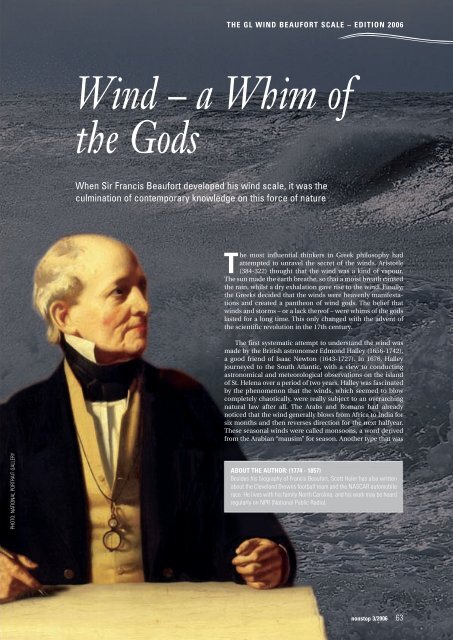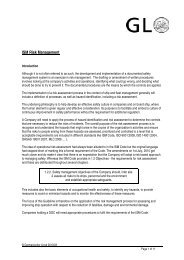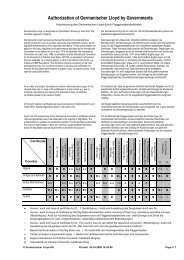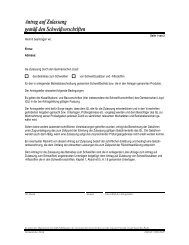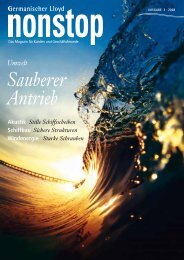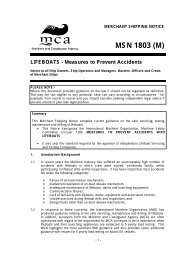Yards Moving Forward - GL Group
Yards Moving Forward - GL Group
Yards Moving Forward - GL Group
Create successful ePaper yourself
Turn your PDF publications into a flip-book with our unique Google optimized e-Paper software.
PHOTO: NATIONAL PORTRAIT GALLERY<br />
THE <strong>GL</strong> WIND BEAUFORT SCALE – EDITION 2006<br />
Wind – a Whim of<br />
the Gods<br />
When Sir Francis Beaufort developed his wind scale, it was the<br />
culmination of contemporary knowledge on this force of nature<br />
The most influential thinkers in Greek philosophy had<br />
attempted to unravel the secret of the winds. Aristotle<br />
(384-322) thought that the wind was a kind of vapour.<br />
The sun made the earth breathe, so that a moist breath caused<br />
the rain, whilst a dry exhalation gave rise to the wind. Finally,<br />
the Greeks decided that the winds were heavenly manifestations<br />
and created a pantheon of wind gods. The belief that<br />
winds and storms – or a lack thereof – were whims of the gods<br />
lasted for a long time. This only changed with the advent of<br />
the scientific revolution in the 17th century.<br />
The first systematic attempt to understand the wind was<br />
made by the British astronomer Edmond Halley (1656-1742),<br />
a good friend of Isaac Newton (1643-1727). In 1676, Halley<br />
journeyed to the South Atlantic, with a view to conducting<br />
astronomical and meteorological observations on the island<br />
of St. Helena over a period of two years. Halley was fascinated<br />
by the phenomenon that the winds, which seemed to blow<br />
completely chaotically, were really subject to an overarching<br />
natural law after all. The Arabs and Romans had already<br />
noticed that the wind generally blows from Africa to India for<br />
six months and then reverses direction for the next halfyear.<br />
These seasonal winds were called monsoons, a word derived<br />
from the Arabian “mausim” for season. Another type that was<br />
ABOUT THE AUTHOR: (1774 - 1857)<br />
Besides his biography of Francis Beaufort, Scott Huler has also written<br />
about the Cleveland Browns football team and the NASCAR automobile<br />
race. He lives with his family North Carolina, and his work may be heard<br />
regularly on NPR (National Public Radio).<br />
nonstop 3/2006 63


